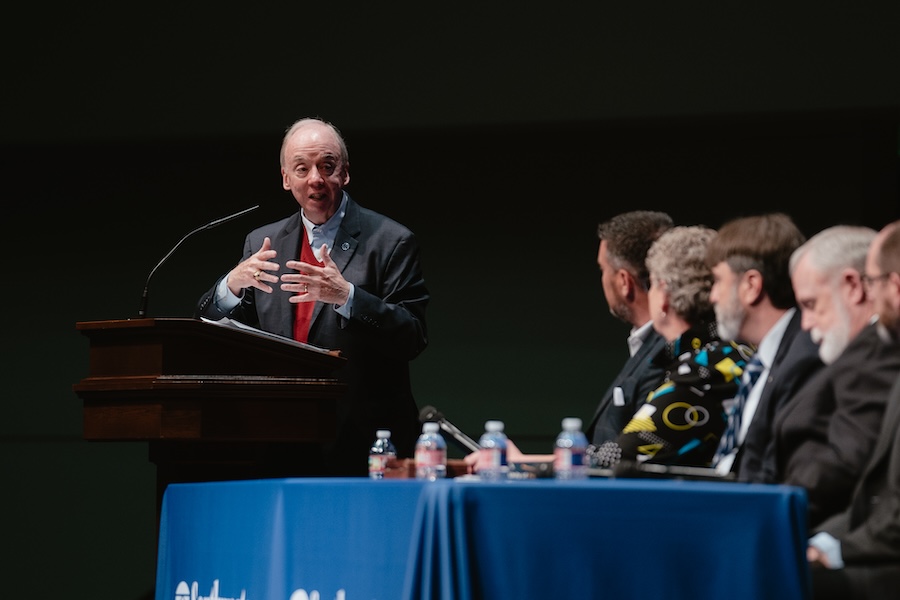How to prepare students for authentic Gospel engagement

Editor’s note: This article originally appeared in the Spring 2023 issue of Southwestern News.
Most students want to evangelize, but they have inadequate preparation for authentic Gospel engagement. Eighty-three percent of Generation Z are more open to sharing their Christian faith than their Millennial predecessors. However, the group’s primary approach to evangelism is through their lifestyle over verbal proclamation. So, how can we both inform and prepare students for genuine Gospel engagement? The following are three keys to getting students to participate in authentic Gospel engagement.
Encourage students for authentic Gospel engagement.
Identify reasons for students’ involvement in evangelism. Students often do not participate in evangelism because adults have yet to give adequate reasons for evangelism. Let them know that their willingness to share the Gospel finds motivation from the two great commandments of Scripture, love for God and others. Additionally, supply observable motivations for Gospel engagement. Supply various statistical age-group data demonstrating how sin and lostness manifest in brokenness. The areas include pregnancy, suicide, drug abuse, and other issues plaguing youth. Providing biblical and practical motivations help students disregard the idea that verbal proclamation is intrusive but rather necessary.
Equip students for authentic Gospel engagement.
Give students a simple yet effective means to share the Gospel. In Acts 26, Paul gives his salvation testimony which, by implication, describes the three stages of every person’s life. The components include 1. The student’s life as a sinner before accepting Christ, 2. How and why they accepted Christ, which includes the Gospel they believed and 3. How their life changed after accepting Christ. The method is easy to memorize because it is the student’s experience. Additionally, it’s organic and relational because we naturally share life events as we converse. The student’s salvation testimony effectively lets their peers know how they received salvation and that it is available to them.
Provide students with opportunities and examples for authentic Gospel engagement.
For all of the church’s attempts to promote the necessity of evangelism to youth, often they end up communicating the opposite. Adults’ lack of Gospel engagement communicates to students that “evangelism is not that important.” Additionally, we have expected students to go alone to find opportunities. However, best practices and the method of Jesus demonstrate that we must serve as an example to students. Thus, we should provide opportunities for them to watch, learn, and participate. The opportunities should include a natural rhythm of evangelism in the community and mission trips prioritizing evangelism.
Carl Bradford (’11, ’18) is assistant professor of evangelism and Malcolm R. and Melba L. McDow Chair of Evangelism.



